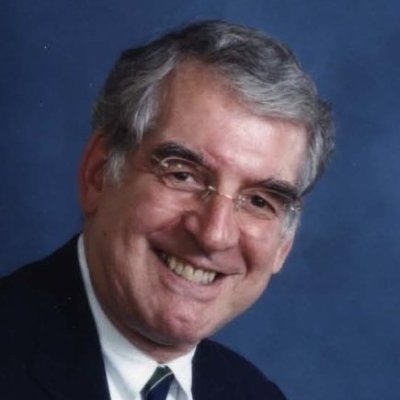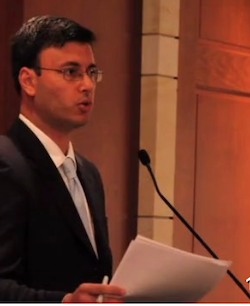lack of EHR interoperability
See the following -
Can Providers Continue the Healthcare Continuum Without Medical Apps?
 Healthcare applications face different challenges than their counterpart in consumer applications. They are not designed to replace providers or to improve the efficiency and scalability of providers. EMR and EHR systems have common characteristics with a database system, but they are designed for healthcare. In other words, healthcare needs its own stack. Healthcare middleware must address all the common services required to support application development. Having a set of APIs access EMR and EHR systems is the starting point, but not the complete solution. Messaging, workflow, rule engine services, and more must be part of a middleware solution. Its footprint must be lightweight and cost efficient so that it can be embedded with the applications. The real healthcare challenge is addressing the missing healthcare applications in support of a diverse care environment. Our efforts must align to inspire developers in addressing providers’ needs. It will be healthcare applications that will evolve healthcare to the next level.
Healthcare applications face different challenges than their counterpart in consumer applications. They are not designed to replace providers or to improve the efficiency and scalability of providers. EMR and EHR systems have common characteristics with a database system, but they are designed for healthcare. In other words, healthcare needs its own stack. Healthcare middleware must address all the common services required to support application development. Having a set of APIs access EMR and EHR systems is the starting point, but not the complete solution. Messaging, workflow, rule engine services, and more must be part of a middleware solution. Its footprint must be lightweight and cost efficient so that it can be embedded with the applications. The real healthcare challenge is addressing the missing healthcare applications in support of a diverse care environment. Our efforts must align to inspire developers in addressing providers’ needs. It will be healthcare applications that will evolve healthcare to the next level.
- Login to post comments
CORAnet Solutions Champions Patients’ Medical Record Access with Its Personal Health Information Exchange
 It has been six years since the HITECH Act passed, yet most Americans seeking medical care are still unable to obtain their full medical records for a variety of reasons whether the hospital will not release them or proprietary EHR system vendors will not allow hospitals, let alone patients, direct access. One Healthcare 2.0 leader, CORAnet Solutions, has developed a tool that finally allows patients access to their complete medical records. This new breakthrough technology enables patients to take control of their personal medical data with CORAnet’s Personal Health Information Exchange (PHIE).
It has been six years since the HITECH Act passed, yet most Americans seeking medical care are still unable to obtain their full medical records for a variety of reasons whether the hospital will not release them or proprietary EHR system vendors will not allow hospitals, let alone patients, direct access. One Healthcare 2.0 leader, CORAnet Solutions, has developed a tool that finally allows patients access to their complete medical records. This new breakthrough technology enables patients to take control of their personal medical data with CORAnet’s Personal Health Information Exchange (PHIE).
- Login to post comments
CORAnet Solutions, Inc.
 CORAnetTM Solutions is a rapidly growing Global Healthcare IT company, providing innovative solutions to a more cost-effective personal health records management. We are a dedicated team of Healthcare and Health IT professionals with a shared vision to facilitate health empowerment. As the creators of the Mobile, Interoperable, Personal Health Information Exchange (PHIE) we are singularly focused on our mission to provide a best of breed Mobile, interoperable and secure EHR support solution and thus become the solution of choice for mobile users looking to own, control and access their medical records anytime, anywhere while enabling healthcare practitioners to provide coordinated care to their clients.
CORAnetTM Solutions is a rapidly growing Global Healthcare IT company, providing innovative solutions to a more cost-effective personal health records management. We are a dedicated team of Healthcare and Health IT professionals with a shared vision to facilitate health empowerment. As the creators of the Mobile, Interoperable, Personal Health Information Exchange (PHIE) we are singularly focused on our mission to provide a best of breed Mobile, interoperable and secure EHR support solution and thus become the solution of choice for mobile users looking to own, control and access their medical records anytime, anywhere while enabling healthcare practitioners to provide coordinated care to their clients.
- Login to post comments
CORAnet™ Takes Home the Frost & Sullivan Competitive Strategy Innovation and Leadership Award for its Outstanding Achievements in the Mobile EHR Market
 The 2017 North American Frost & Sullivan Award for Competitive Strategy Innovation and Leadership was conferred upon CORAnet™ Solutions, Inc. for its robust positioning in the mobile electronic health record (EHR) market. Perceiving the shift toward value-based care, CORAnet™ recognized early that there would be huge demand for mobile personal health record (PHR) solutions. It used this foresight to its advantage by not only delivering novel EHR solutions but also introducing an emergency medicine platform; an ambulatory platform that provides on-demand access to disparate, consolidated and organized PHRs; and a mobile telemedicine platform that offers remote access to care anywhere.
The 2017 North American Frost & Sullivan Award for Competitive Strategy Innovation and Leadership was conferred upon CORAnet™ Solutions, Inc. for its robust positioning in the mobile electronic health record (EHR) market. Perceiving the shift toward value-based care, CORAnet™ recognized early that there would be huge demand for mobile personal health record (PHR) solutions. It used this foresight to its advantage by not only delivering novel EHR solutions but also introducing an emergency medicine platform; an ambulatory platform that provides on-demand access to disparate, consolidated and organized PHRs; and a mobile telemedicine platform that offers remote access to care anywhere.
- Login to post comments
Frost & Sullivan Applauds CORAnet™'s Efforts to Strengthen its Brand in the Competitive Mobile Electronic Health Record Market
 Based on its recent analysis of the mobile electronic health record (EHR) market, Frost & Sullivan recognizes CORAnet™ with the 2017 North America Frost & Sullivan Award for Competitive Strategy Innovation and Leadership. CORAnet™ has emerged a successful, cloud-based mobile technology solution provider, offering first responders, doctors, and individual patients 24/7 secure access to personal health records (PHRs). Its advanced software makes possible real-time access to EHR data that is exchangeable along the entire care continuum. This capability is the result of its deep understanding of sophisticated EHR healthcare information technology, health information exchanges, mobile applications, HIPAA and MU3 compliance requirements.
Based on its recent analysis of the mobile electronic health record (EHR) market, Frost & Sullivan recognizes CORAnet™ with the 2017 North America Frost & Sullivan Award for Competitive Strategy Innovation and Leadership. CORAnet™ has emerged a successful, cloud-based mobile technology solution provider, offering first responders, doctors, and individual patients 24/7 secure access to personal health records (PHRs). Its advanced software makes possible real-time access to EHR data that is exchangeable along the entire care continuum. This capability is the result of its deep understanding of sophisticated EHR healthcare information technology, health information exchanges, mobile applications, HIPAA and MU3 compliance requirements.
- Login to post comments
Is the Technology Gap the Reason Why Medical Errors are the 3rd Leading Cause of Death in the US?
 Hardly a day goes by without some new revelation of an information technology (IT) mess in the United States that seems like an endless round of the old radio show joke contest, “Can You Top This” except that increasingly the joke is on us. From nuclear weapons updated with floppy disks, to critical financial systems in the Department of the Treasury that run on assembler language code (a computer language initially used in the 1950s and typically tied to the hardware for which it was developed), to medical systems that cannot exchange patient records leading to a large number of needless deaths from medical errors.
Hardly a day goes by without some new revelation of an information technology (IT) mess in the United States that seems like an endless round of the old radio show joke contest, “Can You Top This” except that increasingly the joke is on us. From nuclear weapons updated with floppy disks, to critical financial systems in the Department of the Treasury that run on assembler language code (a computer language initially used in the 1950s and typically tied to the hardware for which it was developed), to medical systems that cannot exchange patient records leading to a large number of needless deaths from medical errors.
- Login to post comments
Medical Record Advocate Dr. Donald M. Voltz Leads National Grassroots Petition Drive To Reduce 1,000 Daily Medical Error Deaths
A national grass roots campaign launches today to reduce the medical miscommunications in healthcare systems that cause almost 1,000 deaths a day in the U.S. This campaign seeks to forge a government and industry solution in solving this lapse in electronic healthcare communications, a cornerstone of Obamacare. The campaign is headed by Dr. Donald Voltz...Voltz petition on Change.org demands that the government and medical industry implement a solution to end what is a very easy problem to fix. Once signed by 25,000 U.S. residents age 18 and older, the petition will be sent to the White House for review and a specific, timely action plan.
- Login to post comments
Readers Debate Causes of, Solutions to Limited EHR Usability
 The advent of meaningful use is certainly responsible for increasing EHR adoption, but it hasn't ensured EHR usability and is likewise responsible oversaturating the EHR marketplace with health IT products which might have otherwise floundered without billions in EHR incentives. Recent research published in the Journal of American Medical Association (JAMA) finds that EHR usability is lacking among EHR vendors. Read More »
The advent of meaningful use is certainly responsible for increasing EHR adoption, but it hasn't ensured EHR usability and is likewise responsible oversaturating the EHR marketplace with health IT products which might have otherwise floundered without billions in EHR incentives. Recent research published in the Journal of American Medical Association (JAMA) finds that EHR usability is lacking among EHR vendors. Read More »
- Login to post comments
Should ONC Decertify EHRs That Block Interoperability?
Interoperability is at the top of the list of industry-wide health IT goals, yet commercial EHR offerings with expensive add-on modules, proprietary data standards, and black-box systems that perpetuate data silos continue to be used to meet important goals like meaningful use attestation.
- Login to post comments
The EHR Debacle: Has Organized Medicine Failed Us?
 By now, it should be no secret that physicians in the United States, although largely receptive to the idea of electronic health records (EHRs), are widely dissatisfied with the current state of the art, and with the way that EHR adoption is being implemented.[1] Indeed, Congress[2] has shown continuing – but sometimes seemingly perfunctory – interest in the concerns of physicians and other health care providers, and I am at this point pessimistic about seeing any results of its efforts in the near future unless a more fundamental change is made in our approach. As Einstein noted, “We cannot solve our problems with the same thinking that created them.”
By now, it should be no secret that physicians in the United States, although largely receptive to the idea of electronic health records (EHRs), are widely dissatisfied with the current state of the art, and with the way that EHR adoption is being implemented.[1] Indeed, Congress[2] has shown continuing – but sometimes seemingly perfunctory – interest in the concerns of physicians and other health care providers, and I am at this point pessimistic about seeing any results of its efforts in the near future unless a more fundamental change is made in our approach. As Einstein noted, “We cannot solve our problems with the same thinking that created them.”
- Login to post comments
Using Open Technology To Build a Biodefense Against the Coronavirus
 As the number of US cases of the coronavirus rises, how will healthcare professionals be able to tell the difference between which panicked patients with similar symptoms has what? Even if the patient hasn't traveled to Wuhan or China recently, what if they sat at a Starbucks with someone who did? With the incubation time-lag before symptoms appear, who would even know? The challenge of monitoring 330 million people for infectious disease outbreaks is daunting. Take the flu as an example. During the last flu season which, as already discussed, was not as complex as this year's season, approximately 35.5 million Americans had flu symptoms, 16.5 million received medical care, 490,600 were hospitalized and 34,200 died.
As the number of US cases of the coronavirus rises, how will healthcare professionals be able to tell the difference between which panicked patients with similar symptoms has what? Even if the patient hasn't traveled to Wuhan or China recently, what if they sat at a Starbucks with someone who did? With the incubation time-lag before symptoms appear, who would even know? The challenge of monitoring 330 million people for infectious disease outbreaks is daunting. Take the flu as an example. During the last flu season which, as already discussed, was not as complex as this year's season, approximately 35.5 million Americans had flu symptoms, 16.5 million received medical care, 490,600 were hospitalized and 34,200 died.
- Login to post comments
Why I Hope to Help End EHR’s Lack of Interoperability
 I am tired of waiting. Millions of medical professionals and patients are tired of waiting. We have been waiting for EHR interoperability since the dawn of EHRs in the 1960s. Enough is enough! Our goal is to achieve EHR interoperability through a grass roots coalition of medical professionals and patients who are tired of waiting. The simple life-saving ability of hospital EHRs to connect to one another so healthcare providers can easily and readily access patient data is not being addressed. This type of issue is traditionally solved by industry or government initiatives. But so far they have not, and apparently will not solve it so I have decided to raise this issue through an outpouring of angry citizens, hospital patients, physicians and others being impacted. Read More »
I am tired of waiting. Millions of medical professionals and patients are tired of waiting. We have been waiting for EHR interoperability since the dawn of EHRs in the 1960s. Enough is enough! Our goal is to achieve EHR interoperability through a grass roots coalition of medical professionals and patients who are tired of waiting. The simple life-saving ability of hospital EHRs to connect to one another so healthcare providers can easily and readily access patient data is not being addressed. This type of issue is traditionally solved by industry or government initiatives. But so far they have not, and apparently will not solve it so I have decided to raise this issue through an outpouring of angry citizens, hospital patients, physicians and others being impacted. Read More »
Will PHIEs Lead the Consumer Medical Record Revolution and Bridge the Gap Between Personal Health Records and EHRs?
 It has only been about two generations since traveling medicine shows were common forums for medical information. Phony research and medical claims were used to back up the sale of all kinds of dubious medicines. Potential patients had no real method to determine what was true or false, let alone know what their real medical issues were. Healthcare has come a long way since those times, but similar to the lack of knowing the compositions of past medical concoctions and what ailed them, today’s digital age patients still don’t know what is in their medical records. They need transparency, not secret hospital –vendor contracts and data blocking, like the practices being questioned by the New York Times. One patient, Regina Holliday resorts to using art to bring awareness to the lack of patient’s access to their own medical records.
It has only been about two generations since traveling medicine shows were common forums for medical information. Phony research and medical claims were used to back up the sale of all kinds of dubious medicines. Potential patients had no real method to determine what was true or false, let alone know what their real medical issues were. Healthcare has come a long way since those times, but similar to the lack of knowing the compositions of past medical concoctions and what ailed them, today’s digital age patients still don’t know what is in their medical records. They need transparency, not secret hospital –vendor contracts and data blocking, like the practices being questioned by the New York Times. One patient, Regina Holliday resorts to using art to bring awareness to the lack of patient’s access to their own medical records.
- Login to post comments